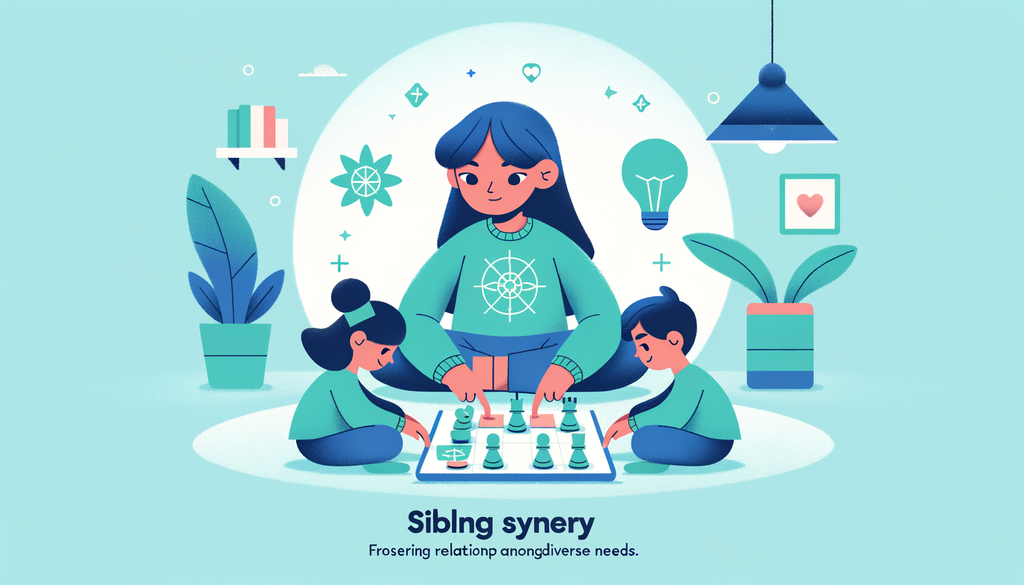Sibling Synergy: Fostering Positive Relationships Among Diverse Needs

Being a parent of children who have diverse needs, whether they have special educational needs or are gifted, can be a balancing act. While each child requires individual attention and methods, we must also be mindful of the relationships between siblings that can significantly influence their psychological development and overall well-being. This article provides tips and strategies for promoting positive sibling relationships, fostering understanding, and developing healthy dynamics at home.
Understanding Individual Needs
When we talk about diverse needs, we mean that each child is unique. They could be twice-exceptional learners, have a diagnosis such as autism[^1^], dyslexia[^2^], ADHD[^3^], or be gifted learners. Regardless of the scope, it’s crucial to understand the individual needs of each child and recognize their unique learning approaches, emotional regulation abilities, and social requirements. Equipped with this knowledge, you can foster an environment of acceptance, empathy, and mutual respect among siblings. You can refer to our earlier blogposts on Understanding Twice-Exceptionality and High-Flyers: Nurturing Leadership in Gifted Children for further insights on supporting your children’s unique needs.
Fostering Empathy
One successful strategy to promote positive sibling relationships is fostering empathy between siblings. Encourage conversation, understanding, and kindness at home to ensure that empathy, not resentment or rivalry, becomes the cornerstone of their relationship. Our blogpost Balancing Act: Siblings of Children with Special Needs offers insights into maintaining harmony and addressing the dynamics between siblings.
Open Conversations
Have candid conversations and discussions about your children’s unique abilities or challenges. This directness can dispel any misconceptions and equip siblings with a better understanding of each other, reducing room for misunderstanding and fostering more supportive relationships.
Joint Activities
Siblings bonding together over shared activities can help strengthen their relationship and create a positive environment at home. Choose activities that can adapt to each child’s abilities, be it art, music, sports, or cooking. Even simple activities like Creating Artistic Spaces for Gifted Young Artists or engaging the kids in Athletics for Children with Special Needs can contribute to their bonding.
Encouraging Independence While Providing Support
Promote independence among your children and let them carve their niche, but also be available to provide help when needed. Remember, the end goal is not merely about managing sibling relationships, but empowering your children to understand and support one another autonomously.
Seeking Professional Support
If you notice persistent conflicts, aggression, or emotional issues among your children, it is advisable to seek professional help. Therapists and counselors can provide solutions tailored to your family’s specific situation.
Balancing the needs of diverse learners in a family can be challenging but remember – you’re not alone. It’s a journey undertaken by many parents around the world, and there’s an array of resources available to help.
Remember to be patient, stay positive and continually educate yourselves – seek out resources like our previous blogposts and many others available online. Shared understanding, open conversations, joint activities, encouragement for autonomy, and professional help when needed can foster a home environment conducive to developing strong and positive relationships among siblings with diverse needs.